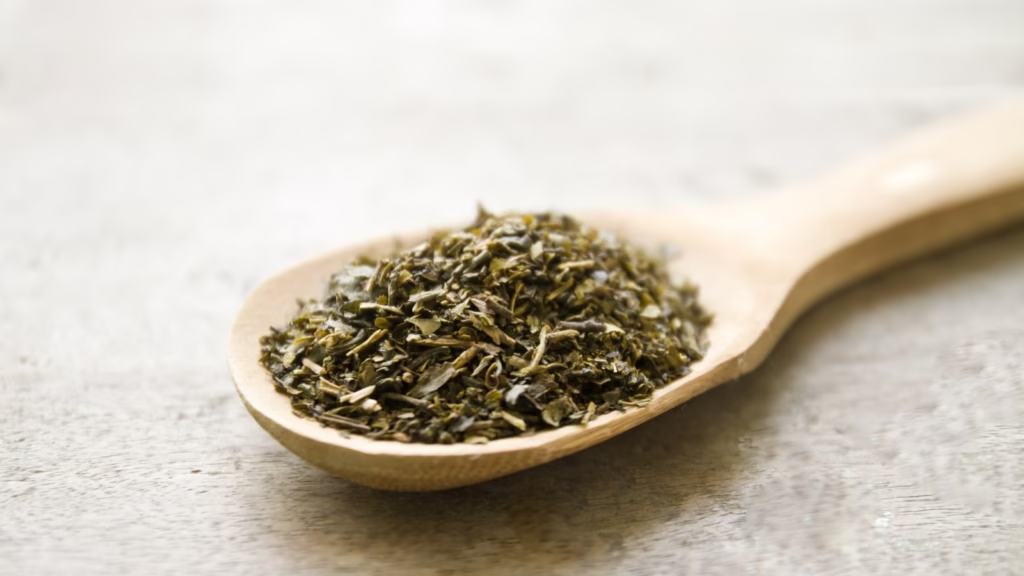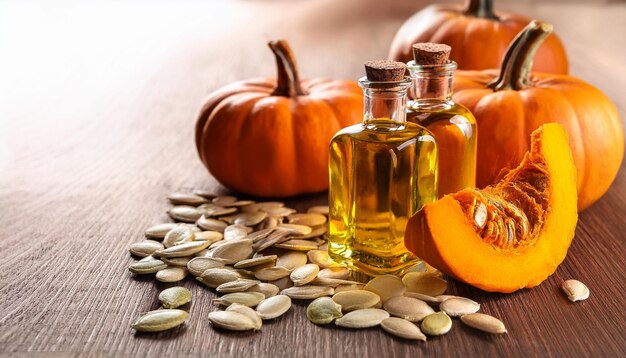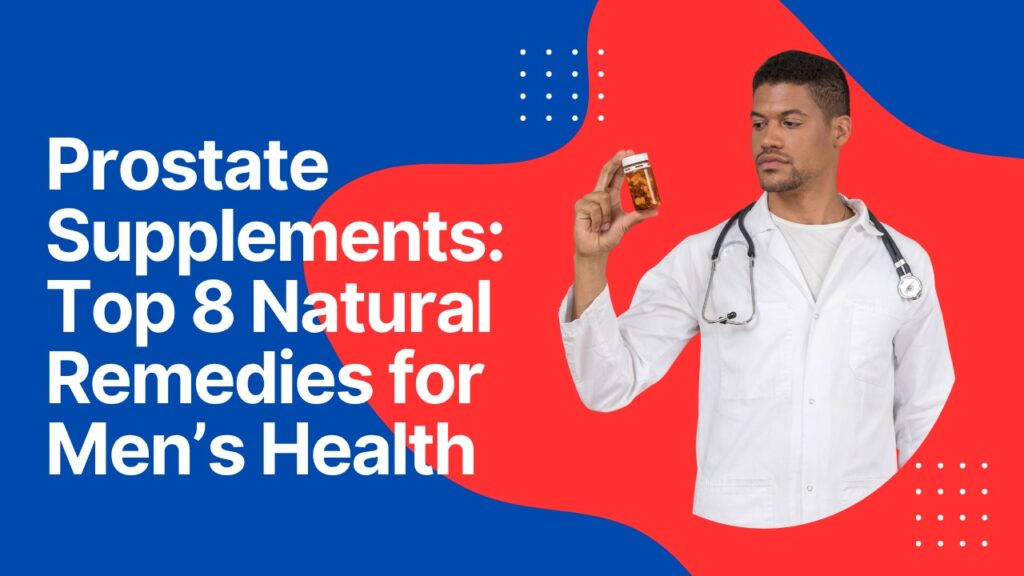Prostate health is a vital part of men’s overall well-being, especially as they age. The prostate is a small gland that plays an important role in the male reproductive system. As men grow older, the prostate can become enlarged or develop other issues that may affect urinary function and quality of life.
Maintaining a healthy lifestyle is key to supporting prostate health. Eating a balanced diet rich in fruits, vegetables, and healthy fats can help. Regular exercise, reducing stress, and staying hydrated are also important steps. In some cases, men may turn to prostate supplements for additional support, especially when they experience common concerns like frequent urination or difficulty emptying the bladder.
Prostate supplements are often made with natural ingredients that aim to support normal prostate size and function. While they’re not a cure, they may help reduce discomfort and promote better urinary health when used alongside healthy habits. Always talk to a healthcare provider before starting any supplement.
Top 8 Natural Prostate Supplements
Saw Palmetto

Saw Palmetto, also known by its scientific name Serenoa repens, is a small palm tree that naturally grows in the southeastern regions of the United States. This plant produces dark berries that have long been valued in traditional medicine for their health benefits, especially for men.
For generations, Saw Palmetto berries have been used to support men’s wellness, particularly in relation to urinary and reproductive health. Many people believe it helps with common issues that come with aging, such as frequent urination or nighttime trips to the bathroom.
Today, Saw Palmetto is a common ingredient found in many prostate supplements. These supplements are often taken by men looking to maintain healthy prostate function and improve comfort. While more research is ongoing, many users include it in their daily routine to support long-term prostate health naturally. As always, it’s best to consult a doctor before starting any new supplement.
Benefits
Supports Urinary Health: Saw Palmetto is commonly used to alleviate symptoms of BPH, such as frequent urination and nocturia (nighttime urination).
Hormonal Balance: It may inhibit the enzyme 5-alpha-reductase, which converts testosterone to dihydrotestosterone (DHT), a hormone linked to prostate enlargement.
Considerations
Effectiveness: While widely used, some studies have shown mixed results regarding its efficacy in treating BPH symptoms.
Side Effects: Generally considered safe, but potential side effects include mild gastrointestinal discomfort and headache.
Beta-Sitosterol
Beta-Sitosterol is a natural plant compound known as a sterol, found in many fruits, vegetables, nuts, and seeds. It has a structure that closely resembles cholesterol, but it functions differently in the body and may offer specific health benefits, especially for men.
One of the most well-known uses of Beta-Sitosterol is its support for prostate health. It may help improve urinary flow, reduce the urge to urinate at night, and ease other symptoms linked to an enlarged prostate. Because of these potential benefits, it has become a popular choice among men seeking natural support.
Many prostate supplements now include Beta-Sitosterol as a key ingredient. Its presence in these products is aimed at promoting better prostate function and helping men maintain comfort as they age. While it’s not a cure, it may play a helpful role when used regularly along with a healthy lifestyle. Always speak with a doctor before using supplements.
Benefits
Improves Urinary Flow: Research indicates that Beta-Sitosterol can enhance urinary flow and reduce the need for additional treatments in men with BPH.
Anti-Inflammatory Properties: Its anti-inflammatory effects contribute to overall prostate health.
Considerations
Dosage: Typical dosages range from 60-130 mg daily.

Safety: Generally safe for long-term use; however, it’s essential to adhere to recommended dosages to avoid potential side effects.
Pygeum Africanum
Pygeum Africanum is a natural herbal extract taken from the bark of the African cherry tree. This tree is native to parts of central and southern Africa, and its bark has been used for generations in traditional medicine for its health benefits.
One of the main uses of Pygeum Africanum is to support urinary health, especially in men. It may help reduce the frequency of nighttime urination and improve overall urine flow. These benefits make it especially useful for men who experience issues related to an enlarged prostate.
Today, Pygeum Africanum is a common ingredient in many prostate supplements. These supplements aim to support better prostate function and improve daily comfort. While Pygeum doesn’t treat medical conditions directly, it may offer gentle, natural support for urinary and prostate health when used regularly. It’s always wise to talk to a healthcare provider before adding any new supplement to your routine.
Benefits
Reduces Inflammation: Pygeum contains compounds that may reduce inflammation associated with prostatitis and protect against the growth of cancerous cells.
Improves Urinary Symptoms: Studies suggest it may alleviate symptoms of BPH, such as frequent urination and nocturia.
Considerations
Environmental Impact: Overharvesting of Pygeum bark has threatened the species’ survival, raising sustainability concerns.
Side Effects: Generally well-tolerated, but some individuals may experience mild gastrointestinal discomfort.
Nettle Root
Nettle root, also known by its scientific name Urtica dioica, has a long history of use in traditional medicine. This plant, often found in Europe, Asia, and North America, has been valued for its natural health properties, especially when it comes to urinary concerns in men.
The root of the nettle plant is commonly used to help with urinary flow and bladder control. It may also ease symptoms often linked to an enlarged prostate, such as frequent urination, especially at night. These benefits have made nettle root a popular natural option for supporting men’s health.
Nettle root is often included in prostate supplements, usually alongside other well-known herbs like Saw Palmetto or Pygeum Africanum. Together, these ingredients work to support overall prostate function and improve comfort. Although not a medical treatment, nettle root can be a helpful addition to a daily routine. Always consult a healthcare provider before starting any supplement.
Benefits
Reduces Lower Urinary Tract Symptoms: Studies have noted that nettle root may help reduce lower urinary tract symptoms associated with BPH.
Antioxidant and Anti-Inflammatory Effects: Contains several plant compounds with potent antioxidant and anti-inflammatory effects.

Considerations
Combination Use: Often used in combination with other herbs like saw palmetto for enhanced efficacy.
Research Limitations: While promising, more large-scale studies are needed to assess its ability to reduce symptoms associated with BPH.
Lycopene
Lycopene is a natural compound found in tomatoes, watermelon, pink grapefruit, and other red-colored fruits. It is a type of antioxidant known for protecting cells from damage caused by free radicals. Lycopene is especially known for its health benefits related to aging and wellness.
In recent years, lycopene has gained attention for its potential role in supporting prostate health. Studies suggest it may help protect the prostate gland and reduce the risk of common age-related issues. It may also support healthy cell function within the prostate, making it a useful nutrient for men’s health.
Because of these possible benefits, lycopene is often included in many prostate supplements. When combined with other natural ingredients, it may help support a healthy prostate and reduce discomfort. While not a cure or treatment, lycopene may provide gentle support as part of a balanced lifestyle. Always talk to a doctor before starting any new supplement.
Benefits
Reduces Prostate Cancer Risk: Research suggests that lycopene may help reduce the risk of prostate cancer by neutralizing harmful free radicals and reducing inflammation in the body.
Improves BPH Symptoms: Some studies indicate that lycopene supplementation can help delay the onset of BPH.
Considerations
Dietary Sources: Including lycopene-rich foods like tomatoes, watermelon, and pink grapefruit into your diet is an easy way to support prostate health.
Supplementation: While supplementation is available, obtaining lycopene through dietary sources is generally preferred.
Green Tea Extract (EGCG)
Green tea extract is widely recognized for its high antioxidant content, especially a compound called epigallocatechin gallate (EGCG). This antioxidant has been the subject of many studies due to its possible health benefits. One area of interest is how EGCG may support prostate function and help reduce the risk of certain prostate issues that come with age.
Research suggests that EGCG can help protect prostate cells from damage caused by oxidative stress. This may be especially helpful for men looking to maintain normal prostate size and function. As a result, green tea extract is now included in many prostate supplements aimed at improving men’s health naturally.
Prostate supplements often use green tea extract to support the body’s natural defenses and maintain healthy prostate tissue. Adding such supplements to a healthy routine may be a useful step for those wanting additional support for prostate health through natural, plant-based ingredients.
Benefits
Anti-Cancer Properties: EGCG has been shown to have anti-cancer properties, potentially slowing the progression of prostate cancer.
Reduces BPH Symptoms: Some studies suggest that green tea extract can help control BPH symptoms and lower the risk of prostate cancer.

Considerations
Dosage: Recommended dosages range from 200-400 mg of EGCG daily.
Potential Side Effects: High doses may cause liver toxicity and can interact with blood-thinning medications.
Zinc
Zinc is an important mineral that the body needs for many vital functions. It helps strengthen the immune system and supports proper healing and cell growth. One of its key roles is in hormone regulation, especially male hormones that are linked to overall reproductive and prostate health.
Low zinc levels have been linked to poor prostate function. Research suggests that this mineral may help protect prostate cells and support normal prostate size. That’s why zinc is often included in prostate supplements, as it may assist in maintaining the health of this important gland.
Many prostate supplements use zinc to help balance hormones and support a strong immune system. Including zinc in your diet, either through food or supplements, may be a smart choice for men who want to support their prostate health naturally and safely. Regular intake of zinc can be an easy yet effective part of a wellness routine focused on men’s health.
Benefits
Supports Prostate Health: Studies have shown that men with lower levels of zinc are more likely to experience prostate problems.
Reduces BPH Risk: Supplementing with zinc can help reduce the risk of prostate enlargement and may even slow the progression of prostate cancer.
Considerations
Dosage: Recommended dosages range from 15-30 mg daily.
Excess Intake: Excessive zinc intake can have harmful effects, highlighting the need for balanced consumption.
Pumpkin Seed Oil
Pumpkin seed oil is a natural source of healthy fats and plant compounds known as phytosterols. These nutrients are known to support various aspects of health, especially in men. One of the key areas where pumpkin seed oil may be helpful is prostate health, due to its natural properties that help protect and nourish the prostate.
Studies suggest that the fatty acids and phytosterols in pumpkin seed oil may help reduce inflammation and support normal urinary function. This makes it a popular ingredient in many prostate supplements. Men experiencing early signs of prostate discomfort often turn to supplements containing pumpkin seed oil for natural relief and support.
Prostate supplements that include pumpkin seed oil are designed to help maintain healthy prostate size and function. Adding this oil to your wellness routine may support long-term prostate health and improve comfort. It’s a gentle, natural option for men seeking effective support through everyday supplements.
Benefits
Reduces Urinary Symptoms: Studies have shown that pumpkin seed oil supports the male reproductive system and can reduce urinary symptoms in men with BPH.
Rich in Nutrients: Contains essential fatty acids and antioxidants that support overall prostate health.

Considerations
Supplementation: Available in supplement form, but incorporating pumpkin seeds into your diet can also provide benefits.
Research: While promising, more research is needed to fully understand its effects on prostate health.
Conclusion
In conclusion, prioritizing prostate health is essential for men, especially as they age and face increased risks of conditions like BPH and prostate cancer. Incorporating prostate supplements made from natural ingredients such as Saw Palmetto, Beta-Sitosterol, Pygeum Africanum, Nettle Root, Lycopene, Green Tea Extract, Zinc, and Pumpkin Seed Oil can offer powerful support in maintaining urinary function, reducing inflammation, and promoting hormonal balance.
While these natural options have shown promising results, they should complement—not replace—professional medical advice and routine check-ups. Choosing high-quality, research-backed prostate supplements and adopting a healthy lifestyle that includes a balanced diet, regular exercise, and stress management can greatly enhance prostate well-being. As with any supplement, it’s important to consult a healthcare provider before starting, to ensure the best results and safety. By taking a proactive approach, men can significantly improve their quality of life and long-term prostate health.

FAQs
- What is pumpkin seed oil, and how does it help the prostate ?
Pumpkin seed oil is made from pumpkin seeds and contains healthy fats and plant sterols that may help reduce inflammation and support normal prostate function. - Are prostate supplements with pumpkin seed oil safe to use daily ?
Yes, most prostate supplements with pumpkin seed oil are safe for daily use when taken as directed. Always follow the dosage on the label or consult a healthcare provider. - Can pumpkin seed oil help with frequent urination at night ?
Some studies suggest that pumpkin seed oil may help improve urinary flow and reduce nighttime urination, especially in men with mild prostate issues. - How long does it take to see results from prostate supplements ?
Results can vary, but many men report noticeable improvements within a few weeks to a few months of consistent use. - Can I take pumpkin seed oil supplements with other medications ?
It’s best to consult your doctor before combining any supplements with medications, to avoid unwanted interactions.
